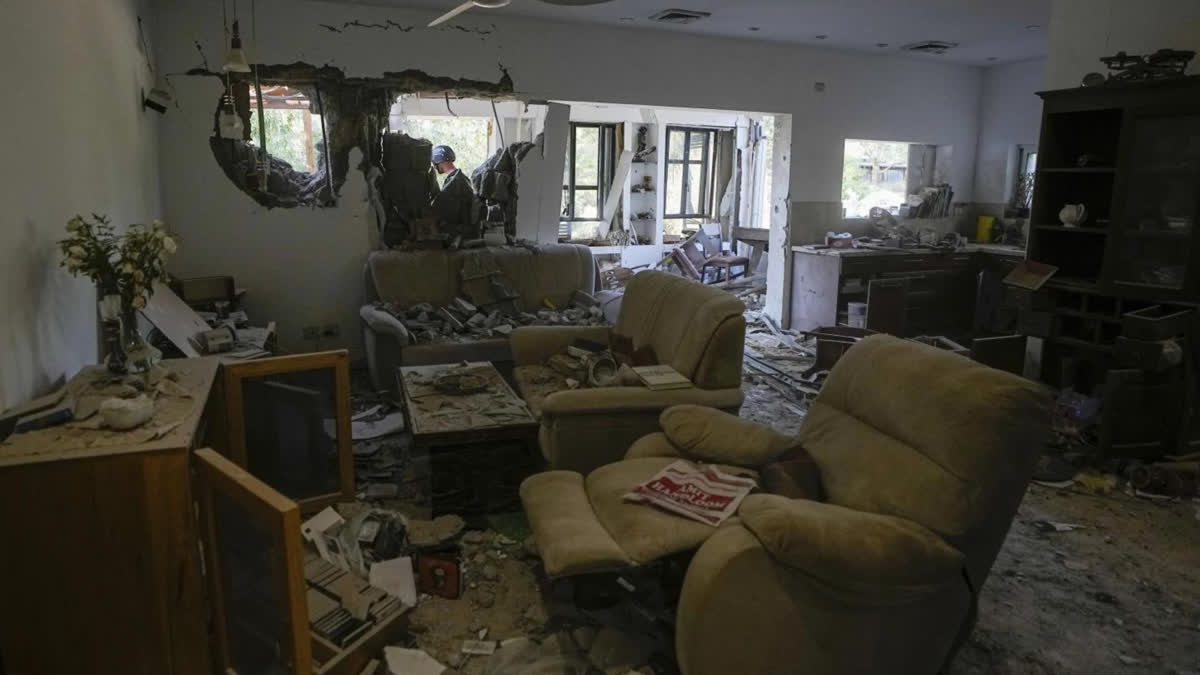Deir-EL-Balah (Gaza Strip) : Gaza's 2.3 million civilians faced a deepening struggle for food, water and safety Sunday and braced for a looming invasion a week after Hamas militants launched a deadly assault on Israel. While hundreds of thousands sought to heed Israel's order to evacuate the north, others huddled at hospitals there.
Israeli forces, supported by a growing deployment of US warships in the region, positioned themselves along Gaza's border and drilled for what Israel said would be a broad campaign to dismantle the militant group. A week of blistering airstrikes have demolished entire neighbourhoods but failed to stem militant rocket fire into Israel.
The Gaza Health Ministry said 2,329 Palestinians have been killed since the fighting erupted, making this the deadlest of the five Gaza wars for Palestinians. The death toll on Sunday surpassed that of the third war between Israel and Hamas, in the summer of 2014, when 2,251 Palestinians, including 1,462 civilians, were killed, according to UN figures. That war lasted six weeks, and 74 people were killed on the Israeli side, including six civilians.
In Israel, pathologists and others at a military base worked through the Jewish Sabbath to identify the more than 1,300 Israelis and others killed in Hamas's October 7 assault. This is the deadliest war for Israel since the 1973 conflict with Egypt and Syria. Israel dropped leaflets over Gaza City in the north and renewed warnings on social media, ordering more than 1 million Palestinians almost half the territory's population to move south. The military says it is trying to clear away civilians ahead of a major campaign against Hamas militants in the north, including in what it said were underground hideouts in Gaza City. Hamas urged people to stay in their homes.
The UN and aid groups say such a rapid exodus, along with Israel's complete siege of the 40-kilometer-long (25-mile-long) coastal territory would cause untold human suffering. The World Health Organisation said the evacuation could be tantamount to a death sentence for the more than 2,000 patients in northern hospitals, including newborns in incubators and people in intensive care. Gaza's hospitals are expected to run out of fuel for emergency generators within two days, according to the UN, which said that that would endanger the lives of thousands of patients.
Gaza was already in a humanitarian crisis due to a growing shortage of water and medical supplies caused by the Israeli siege, which has also forced electrical plants to shut down without fuel. With some bakeries closing, residents complained of being unable to buy bread for their children. In Gaza City, Haifa Khamis al-Shurafa crowded into a car with six family members, fleeing to the south in the darkness. We don't deserve this, Shurafa said, before leaving her home city. We didn't kill anyone.
